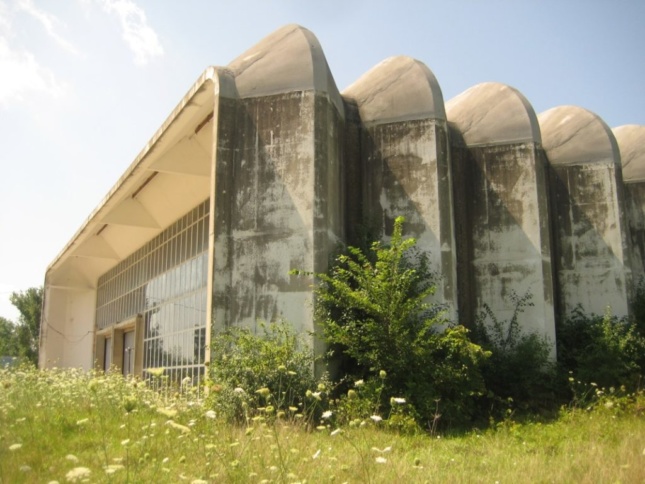Landmarks Illinois, working with, the City of Elgin, Illinois, and Skidmore, Owings & Merrill (SOM) have released an extensive study into the reuse of the Elgin Laundry Building. The long span accordion-shaped structure was designed by Bertrand Goldberg and sits the former campus of the Elgin Mental Health Hospital.
Currently vacant, the study explores how the space could be reused as a multipurpose recreational facility. Landmarks Illinois listed the 1967 structure on its 2009-09 Chicagoland Watchlist, a list of endangered historic building in the Chicago area. In the past, Goldberg’s status as one of Chicago’s Modernist masters has not been enough save his buildings from the wrecking ball.
SOM’s reuse plans leverage the building’s 110-foot by 240-foot column-free interior. The hope is to provide a space that can be programmed for maximum flexibility, without compromising the original design. If realized, the Laundry Building would become an extension of Elgin’s existing central relaxation complex. The proposal includes the possibility of 350 spectator bleachers, locker rooms, administrative offices, refurbished glass end walls, and a floor that could be used for basketball, indoor soccer, and other team sports.
Over the years the building has suffered some cosmetic wear, but it is still structurally sound. SOM has also included plans for making the building more sustainable. Possible power generation from photovoltaic cells and rainwater harvesting are part of the study, as well as improved daylighting and natural ventilation.
This initial proposal is still in the speculative stage, but if pursued, the city and designers, hope to engage the public in realizing the project. The full study can be found here.
